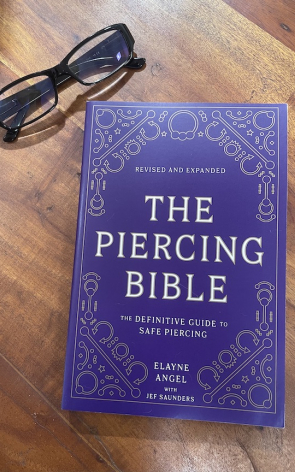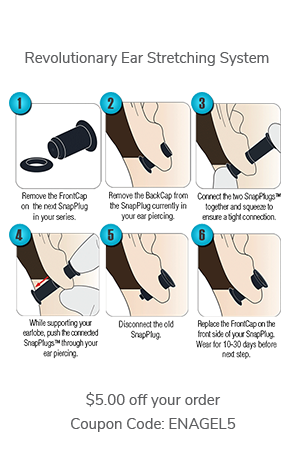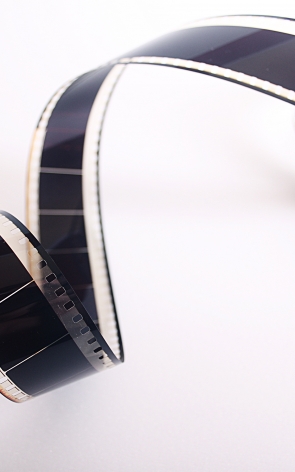Hi, my name is Jake. I pierce at a shop in North Everett, Washington. I must say, every time we get a Pain magazine the first thing i do is flip right to your article and get my learn on. Yesterday, I went to hang out with a good friend of mine, Troy Amundson, he said I should shoot you an email. Sorry, if I am bothering you or if there is a better way to get a hold of you, please let me know. I just had one small question.
I pierce right handed, and as a piercer I have been growing a lot (especially with the help of Troy), I realize, its time for me to learn to pierce left handed, so I can approach some piercings in a better manner. Troy said that he had practiced on leather, I've done that, I was just wondering if maybe you had any other suggestions to help maybe even build hand control or strength. Thank you soo much for your time and really its an honor just emailing you. Again, thank you. Jake
Hi Jake,
Thanks very much for the positive feedback--I hope that you find my articles to be helpful. Anyway, as far as piercing goes, I'm a left handed piercer and do all of my piercings with the needle in my left hand. I do not believe that this has hampered my skills. Sometimes it takes a little adjustment of my position and/or the client's position, but it seems to work just fine. Some people are more ambidextrous than others, and if it seems like it wouldn't be hard to build your skill with your non-dominant hand, then it is simply a matter of practice. Working on leather or thick fabric can be helpful before you progress to the paying public. Maybe some of your friends can let you experiment on them as you work to develop your skills?
As far as hand control and strength, you can practice and play with jewelry to gain strength and dexterity. You can open and close captive rings and insert beads in them without using tools, and work up to thicker gauges as you get stronger. Practice picking up and screwing together threaded jewelry in the smallest gauges without looking. Labret discs are good to practice with, too. Screw on barbell balls as tight as you possibly can, and then unscrew them again. You can make up little challenges for yourself like that to improve your ability to deal with jewelry.
If you have other questions, please feel free to ask. And say hi to Troy for me when you see him next. Sincerely, Elayne
This is a question from a piercer who is concerned about doing the right thing:
I would like to ask some advice from you, as I've had a weird request from a client this afternoon. She is going into surgery this next week, and her surgeon told her that he would do her nipple piercings for her while she is under anesthesia if she could bring in the jewelry. Of course, I was leery of wanting to sell the jewelry and encourage a possibly botched piercing. She also told me that the doctor suggested that a licensed piercer come in and do her piercings while she was under anesthesia (I would be concerned about any legal & ethical questions/ramifications resulting from piercing one under anesthesia-even if agreed upon in paperwork). I would be open to piercing in a hospital setting, but, not sure if this is a route I would want to take?
I hate being put in a position where I would really prefer her to come to my studio and get pierced, but am afraid that she'll get the piercing anyway by someone who hasn't been trained to pierce. (Her reason for doing it while under anesthesia is that she's had 2 very bad experiences with past nipple piercings.) I guess we can't "save" all of them, but, what would be your best advice for a situation like this? *N*
Hi N,
Well, that's not necessarily an easy question to answer. I believe you will need to decide the best course of action for yourself under the specific circumstances. I'm willing to tell you what my response would be in this situation: I wouldn't do it. I think you're correct; we can't "save" all of them. We can do our very best to educate and inform potential clients. As someone put it, "You can lead a horse to water but you can't make it drink." I'm afraid piercees are the same way. You can provide them with sound facts and information, but they may not put it to good use. In the case of a client who has had bad prior experiences, I'd try to arrange to have her observe me perform some piercings, preferably someone else's nipples. Sometimes that goes a long way to help reassure a piercee who has experienced a hack job.
There are potential legal and liability issues, and then there's the concern of nosocomial infection. Are you familiar with that term? It refers to infections caused as a result of hospitalization. They happen regularly and they can be very serious. Frankly, I'd rather pierce in my own studio than in a medical facility. I also wouldn't want a freshly pierced client to even be in a hospital! There are additional practical issues to consider such as marking the piercings. Would you somehow manage to do that while she is standing, before she goes under anesthesia? Those things come to mind, and there are other considerations I can't factor in without additional information. For example, will she stay in the hospital a while, or is she getting an outpatient procedure? How might her surgery (whatever it is for--you didn't say) impact her ability to care for her piercings, or--importantly--to heal them? If her body is healing from a surgical procedure that isn't the best time to try to heal any piercings. Especially since that area that probably has some scar tissue from the previous piercings. All that being said, you need to do what feels right for yourself in the situation. Let me know what happens.
I just received this email from a piercer:
I am a regular reader of your advice in Pain Magazine and I am a huge fan of your recent book. You have made me a better piercer...
I'm one of the only piercers in my area not looking for a quick buck. My question to you is, how do I stop all this negativity in the profession in my area? I believe that what really matters in this is our clients. I want to see them get the safest best piercing the first time around. I am often fixing many of these piercings these guys are doing and coming to find out that I'm being bad talked about, but in the end, I'm the one who is fixing their work. I appericiate your time and again your book was an amazing source of information that all piercees should read prior to getting pierced. Thanks again, Jeff
This is my reply: Hi Jeff, Thanks for the positive feedback--I appreciate it, and I'm glad to know that my work has been helpful to you. Unfortunately, the problem you describe is very common. I actually had a nearby piercer telling people that my studio reused needles and didn't sterilize anything, and that we were filthy and didn't know what we were doing! He told people that if they'd been pierced in my studio, they probably had AIDS and Hepatitis from it! My "bad neighbor" piercer had actually maligned me so much that I had people who had been fed the slanderous statements sign affidavits about what he said, and contacted an attorney who issued him a "cease and desist" letter! When people came in--sometimes concerned about what they'd been told, I simply behaved my usual professional way and educated them about the hygiene and sterilization procedures that were used in the studio. It never took long at all to convince everyone who had been lied to that we most definitely did know what we were doing, and that there was no risk of disease transmission from piercing performed in my place of business.
I find it can be helpful to your clients if you have printed materials that clearly explain things. I had one that discussed the quality of my jewelry and what was different about it from the cheap stuff down the road--and why it was worth paying more for. I had a sheet that detailed all of the hygiene and sterilization procedures that were carried out in the studio. I disseminated the "Picking Your Piercer" brochure from the Association of Professional Piercers. I've also been a member of the organization for many years. And by showing that I meet the membership criteria and follow all existing industry standards, it set me apart from other local piercers. I would also describe the risks they'd encounter if they got pierced anywhere the jewelry and procedures were below par.
This can be done politely and professionally, without badmouthing anyone. It takes time and effort to educate potential customers. But I usually found that it was well worth the effort involved, and that many people became my loyal clients, and also told their friends about the superior treatment and quality products and services they received under my roof. Then again, the saying goes, "You can lead a horse to water, but you can't make him drink," and unfortunately the same applies to people. You can share the information with them, but some simply won't take heed. However, many of them will! Keep doing what you're doing the right way! I wish you the best of luck.
P.S. Since you agree that all piercees should read my book before getting pierced, I wanted to let you know that it can be purchased wholesale from the publisher to resell in your studio! Contact me for details!




